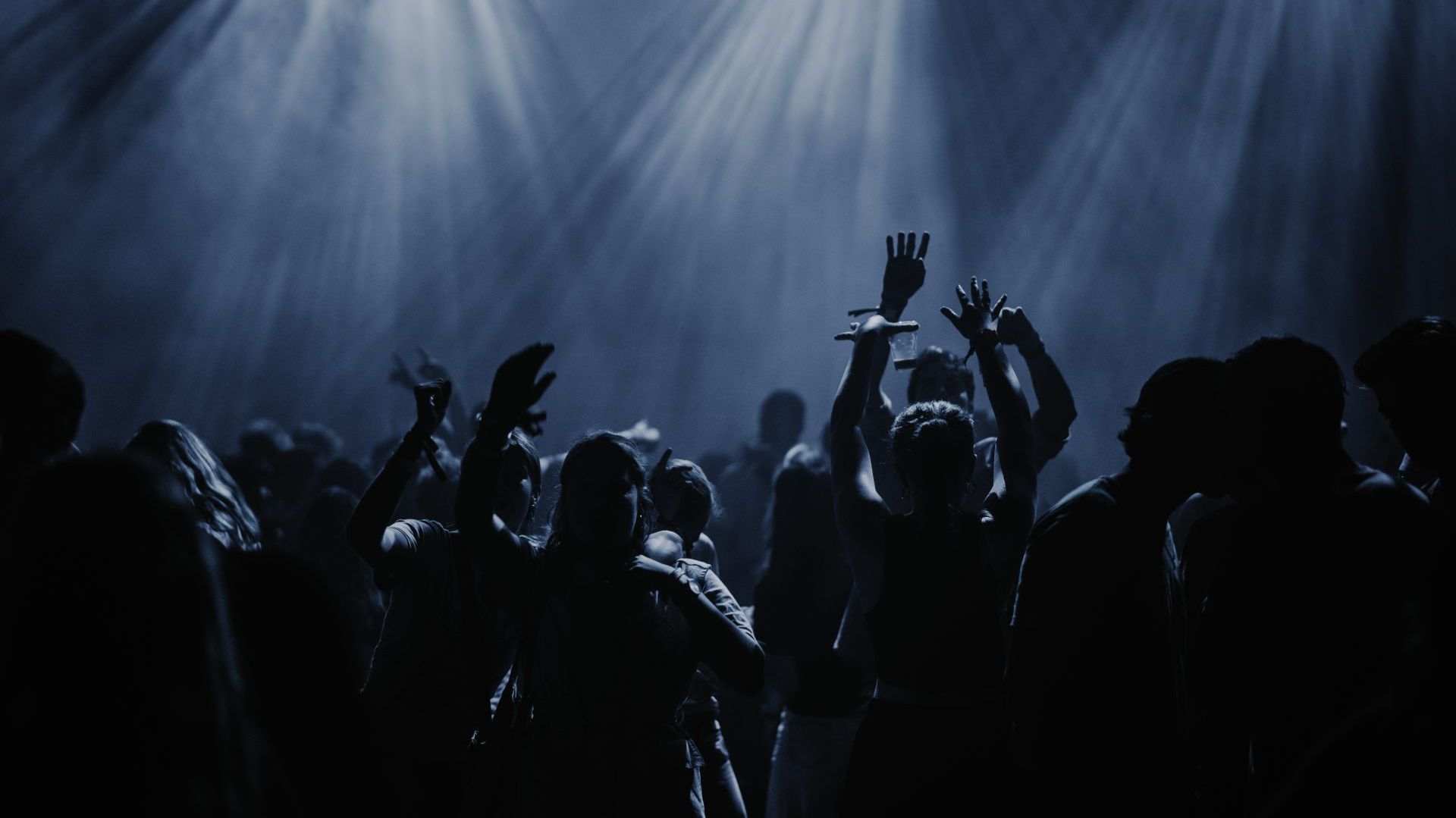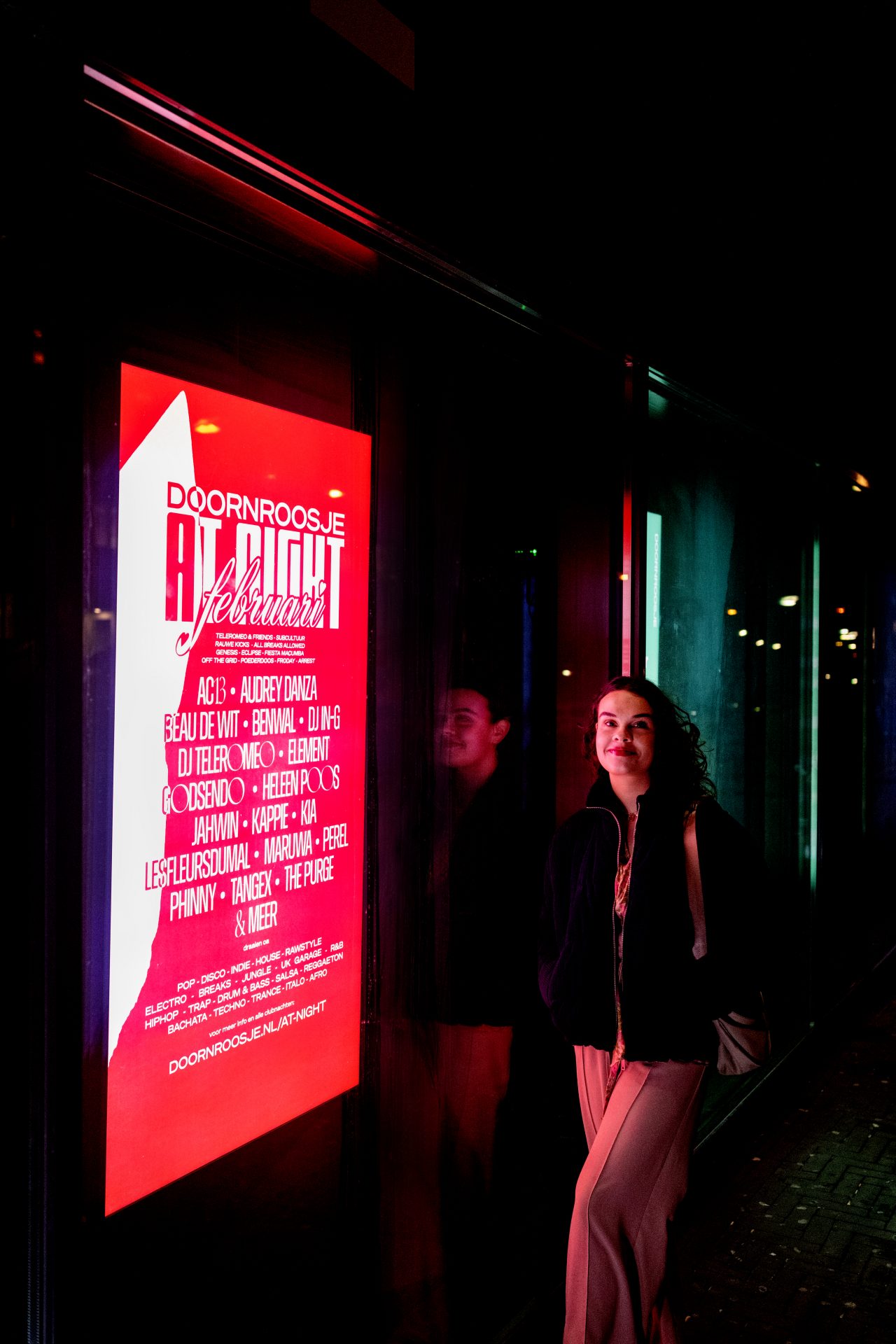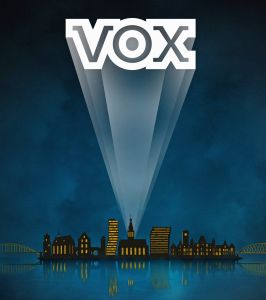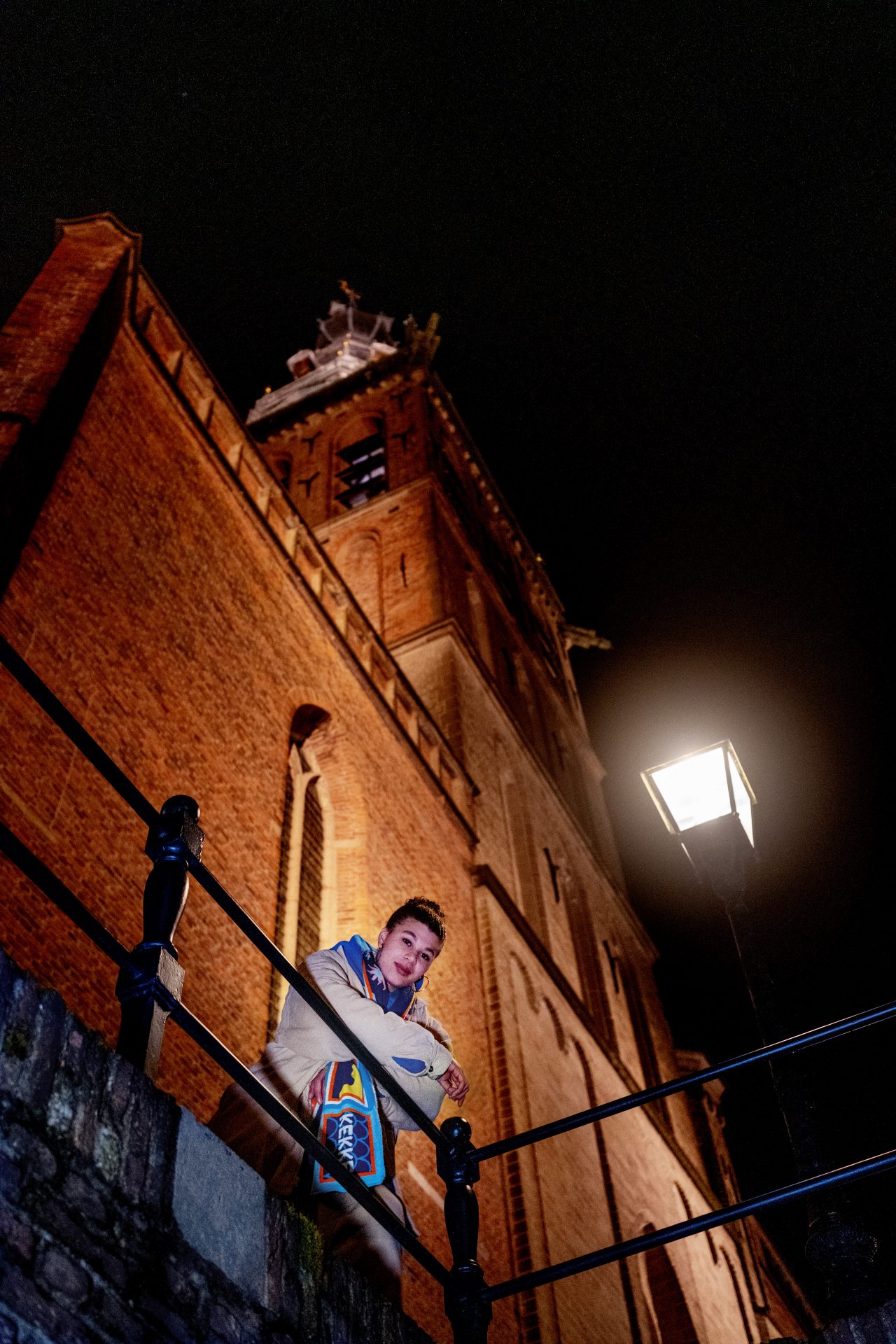Nijmegen’s nightlife has more to offer than the Molenstraat
-
 Het psychologiefeest Psyched in Doornroosje tijdens de introductie van 2023. Foto: Johannes Fiebig
Het psychologiefeest Psyched in Doornroosje tijdens de introductie van 2023. Foto: Johannes Fiebig
A vibrant nightlife is good for a city and its inhabitants. More and more people are convinced of that. So, how is Nijmegen’s nightlife doing? 'The city has more than enough to offer, but you have to look beyond the Molenstraat.'
Like every student, Me’Shell Provence first got to know Nijmegen’s nightlife in and around the Molenstraat. She came from the east of the country to Nijmegen, right after finishing high school, for the introduction of her communication science studies, and immersed herself in the party scene.
New Vox
This story is part of the new Vox magazine, which is all about the night and can be found on campus from March 19th onwards. What are Nijmegen students up to while you’re having a lucid dream? Who’s staying behind, and do UFOs actually exist? You can read all about that in the new Vox.
In the beginning, she enjoyed cafés like De Fuik, Van Rijn, and Van Buren, she says. You follow your group, get to know the city, and just have a good time, as you should at the beginning of your studies. But soon, she began to see the less pleasant side of the Molenstraat. ‘Bars like Drie Gezusters and Bar 2 are extremely busy and there’s often quite an aggressive atmosphere,’ says Provence. The crowd that came there didn’t appeal to her anymore. ‘So, I didn’t go out as much for a while. Until I discovered other parties, like in Doornroosje and at Waalhalla. Everything is much better organised there, and at the very least they’re playing good music.’
According to Provence, who finished her studies last year and is now working as a content marketer, Nijmegen’s nightlife has more than enough to offer, but you have to look beyond the Molenstraat. She herself is into electronic music, and for that, you really have to leave the city centre and head towards Vasim, for example.
The value of the night
Provence, along with other students from the Radboud Honours Academy, completed a study on Nijmegen’s nightlife in 2022. Commissioned by the then-night mayor Cees de Beer, the group conducted a survey and interviews with entrepreneurs and programmers. The idea behind it was to look for the positive aspects of nightlife. ‘When we talk about the night, it’s usually about drugs, violence, alcohol, and crime,’ she says. ‘You hear much less about how nightlife is also very important for the well-being of the city’s inhabitants.’

But what is the value of the night exactly? According to the students, there is not a straightforward answer to that question: a vibrant nightlife is good for the economy, but also for the culture and social cohesion in a city. People experience a sense of freedom during the night and connect with each other. ‘Nightlife is an outlet,’ explains Provence. ‘At night, people break free from the routine of their daily lives.’ If there’s no nightlife in a city, certain groups will seek ways to combat boredom themselves. This in turn leads to more crime and vandalism.
There is certainly room for improvement when it comes to Nijmegen’s nightlife, the Honours Academy students concluded in their report. An important point of attention: diversity in the offerings. Provence: ‘In the Molenstraat, it’s mostly more of the same. There are bars that recycle the same playlist every night.’ People with tastes that don’t fit the mainstream often miss out.
However, Provence also sees positive developments. ‘When we conducted our research two years ago, there was a great need for a real club in Nijmegen. Initiatives like Club Freya and Bloemerbar responded to that.’ The diversity of parties has increased somewhat, notes Provence. ‘Now my friends and I sometimes ask ourselves: which party should we go to tonight? Before, there were far fewer options.’
Concerns
About a year and a half ago, various parties involved in the night – mainly programmers and entrepreneurs – joined forces to take action against ‘the silent disaster’ that was happening in Nijmegen’s nightlife. The reason for Nachtcult, as the group called itself, was the impending closure of beloved locations like Brebl, Hubert, Strandbar Stek, and Neus.
One of the people behind this initiative was Celia Okoro. The former Radboud student knows the Nijmegen night like no other: since last year, she can call herself the night mayor. Her task in that role is to be a connecting link between the public, politics, and the sector.
‘The quality of what we program in Nijmegen is really sick’
Make no mistake, Okoro is immensely proud of the nightlife in ‘her’ city. ‘We really, really, really have a fantastic nightlife. The quality of what we program in Nijmegen is really sick.’ Okoro herself organizes the queer party AZOTH in Mesh, the new club in Vasim, but she also sees many new initiatives emerging. New festivals are coming from collectives like WTF, Crotona, and the people behind Stek, where dance enthusiasts can indulge.
Diversity
But Nachtcult’s concerns haven’t disappeared. What Okoro is particularly concerned about is that there are few places where party organisers can start out easily. ‘Like at Hubert and Brebl. Brebl called itself a playground for adults – many new collectives emerged there.’ Places to experiment, the fringes where failure is also allowed, are hardly there anymore in Nijmegen, according to Okoro. ‘You just have to provide space for that. Not temporarily, but permanently.’
Meanwhile, dance music – alongside the more mainstream party music of Molenstraat – is increasingly dominating Nijmegen’s nightlife. Other styles are finding it much harder to gain a foothold. ‘There are for example very few stages for hip-hop. It’s much more difficult to start.’ If you want real diversity in the offerings, you have to ensure that other organisations and initiatives also find their way. ‘People who want to do things differently or target a niche audience need a helping hand.’ The municipality can certainly play a role in this, Okoro believes, by giving these initiators a financial boost.
Accessibility
The students of the Honours Academy concluded after their research that there is still ground to be gained in terms of inclusivity and safety when it comes to Nijmegen’s nightlife. As beautiful as life can be at night, there is also a dark side: unwanted touching, (sexual) harassment, and discrimination. Almost all women, but also transgender people, have experienced it.
As a woman of colour, Okoro can talk about it. ‘I speak standard Dutch and used to go out with a group of white friends. That was no problem, I got in everywhere. My brother with his Moroccan friends on the other hand? They just gave up after a while. When the bouncer saw them coming, he would shake his head.’ But it’s not just about skin colour. Visitors with disabilities also have a hard time in Nijmegen’s nightlife. ‘It’s really terrible that you can’t go out if your legs don’t happen to work,’ says Okoro. ‘And if you do get in somewhere, and you drink three beers, you’re still screwed because there’s often no wheelchair-accessible toilet.’
‘Nightlife is for everyone’
According to Okoro, it’s up to various parties to take action when it comes to this. Location owners can, for example, take steps towards wheelchair accessibility with simple adjustments. If renovation are really necessary, they should be able to fall back on financial support from the municipality. ‘It may be a dream, but nightlife is for everyone. That is what we should all strive for.’
Because of that, she has her eyes set on the night vision that the municipality is currently working on (see interview with Noël Vergunst). As the night mayor, Okoro plays an important advisory role in this. According to her, the vision should be completed by summer and should provide various guidelines for a better nightlife. ‘It is an opportunity to give nightlife a structural place in policy. Not that there will be a few years of investment and then nothing. It just belongs there.’
Hotspots
Nijmegen’s nightlife is constantly developing. New clubs open their doors, while others cease to exist. What are the latest hotspots among students? Vox lists three.
Club Mesh
Since last summer, lovers of house and techno music can go to Mesh – and completely be themselves there. Without having to worry about tomorrow, because the club has a ban on taking photos and videos to ensure the discretion of its visitors. Located in Vasim, the industrial decor provides an optimal stage for local talents, but also (inter)nationally renowned DJs like Elias Mazian, who filled many nights as a resident at the famous Amsterdam club De School, until it closed down.
Rolluik
No longer a stranger to the Nijmegen nightlife audience: club Rolluik, located in the former back room of Café van Buren. Where student associations used to hold their parties on Wednesday night, people have been dancing here to usually electronic music for over a year now. Also during the week, for example, at Lizzy op donderdag.
Bloemerbar & Paak
The Bloemerstraat is currently undergoing a transformation into a nightlife hotspot: with vinyl bar Paak and Bloemerbar, the Nijmegen city centre has gotten two electronic mainstays richer in a short time. Where disco lovers can enjoy drinks and dancing to their heart’s content in Paak, house fans indulge in the Bloemerbar.
Translated by Siri Joustra





